Immune System
Table of Contents
Definition
The Immune System is the body’s mechanism for preventing or inhibiting infection. It can protect the body against bacteria, viruses, parasites, and more because of its intricate network of cells, organs, proteins, and tissues.
A working immune system can provide the difference between healthy tissue and foreign molecules. If an undesirable material, it will activate an immune response, which is a complex attack designed to protect the body from invaders. It also discovers and eliminates dead and non-viable cells.
But, the immune system does not always get it. For example, it may be unable to fight because a person has a health condition or requires drugs that influence how the system operates.
In autoimmune disorders and allergies, the immune system misidentifies good tissue as diseased and launches an unwarranted attack, resulting in painful and occasionally severe symptoms.
This article will examine some of the most important aspects of the immune system and how they protect the body against diseases and other intruders. It will also investigate immune system issues that may emerge.
The immune system is made up of several parts, including:
- White blood cells (leukocytes)
- The spleen
- The bone marrow
- The lymphatic system
- The thymus and the tonsils
What are the parts of the Immune System?
Your immune system is an involved network of cells and organs. They all work together to keep you safe from infections and to help you recover from illness. The primary elements of the immune system are:
White blood cells: Acting as an army against dangerous bacteria and viruses, white blood cells look for, attack, and eliminate germs to keep you healthy. WBCs play an important role in your immune system. Your immune system has a variety of white blood cell types. Each cell type either circulates in your circulation and throughout your body or sits in a specific tissue, waiting to be activated. Each cell type has a distinct purpose in your body’s defense system.
Lymph nodes: They are also a part of your body’s lymphatic system. Lymph nodes include immune cells that analyze foreign intruders introduced into your body. They then activate, proliferate, and dispatch specialized lymphocytes (white blood cells) to combat the intruder. You have hundreds of lymph nodes throughout your body, including those in your neck, armpits, and groin. Swollen, painful lymph nodes indicate that your body is fighting an illness.
Spleen: Your spleen stores white blood cells that protect your body from foreign intruders. It also filters your blood, removing old and damaged red blood cells.
Tonsils and adenoids: Because they are placed in your throat and nasal canal, tonsils, and adenoids can capture foreign invaders (such as germs or viruses) as soon as they enter your body. They have immune cells that create antibodies to defend you from foreign invaders that cause throat and lung infections.
Thymus: This little organ in your upper chest behind your breast bone aids in the maturation of a specific type of white blood cell. This cell’s unique duty is to learn to recognize and remember an intruder so that an assault can be initiated rapidly the next time this invader is encountered.
Bone marrow: Stem cells in the spongy center of your bones turn into red blood cells, plasma cells, and a variety of white blood cells.
Skin, mucous membranes, and other first-line defenses: Your skin is the first line of defense in preventing and killing germs before they reach your body. Skin generates lipids and secretes immune system cells. Mucous membranes bind the respiratory, digestive, urinary, and reproductive systems. These membranes produce mucus, which lubricates and soak surfaces. Germs adhere to mucus in the respiratory system and are subsequently pushed out of the airways by hair-like structures called cilia. Tiny hairs catch germs in your nose. Enzymes present in sweat, tears, saliva, and mucus membranes, as well as vaginal secretions, all protect and eliminate bacteria.
Stomach and bowel: Many germs are killed by stomach acid soon after they enter your body. You also have helpful (good) microorganisms in your body.
How does an Immune System work?
To function properly, the immune system must be able to discriminate between healthy and sick cells and tissues. It accomplishes this by detecting signals known as DAMPS, or danger-associated molecular patterns.
Cell damage may occur for a variety of causes, including:
- Bacteria, viruses, and toxins are examples of infectious agents.
- Such as a bite or sting Noninfectious physical injury, such as burns
- A genetic issue within cells, as seen in cancer
In many circumstances, an antigen is a bacteria, fungus, virus, toxin, or foreign substance. It might potentially be a defective or dead cell.
Pathogen-associated molecular patterns (PAMPs) in the antigen are detected by the immune system. As a result, several components of the system.
Type of White Blood Cells
Leukocytes, often known as white blood cells, are classified into two types:
Phagocyte
These cells surround Trusted Source and absorb viruses, breaking them down and effectively devouring them.
There are various varieties, including:
Neutrophils: commonly known as granulocytes, give an early reaction to inflammation. They fight infections but also die as a result.
Macrophages: These clean up after a response. They clean up infections, dead neutrophils, and other detritus.
Dendritic cells: These initiate the immune response and aid in the engulfment of bacteria and other intruders.
Monocytes: These can develop into dendritic cells and macrophages as needed.
When mast cells identify an antigen, they initiate an immunological response.
Lymphocytes
Lymphocytes assist the body in recalling prior intruders and recognizing them if they return to assault.
Lymphocytes are born in the bone marrow. Some grow into B lymphocytes (B cells) in the bone marrow, while others migrate to the thymus and become T lymphocytes (T cells). These two cell types serve distinct functions.
B cells generate antibodies and aid in the alerting of T lymphocytes. T lymphocytes function to notify other leukocytes by destroying compromised cells in the body.
Natural killer (NK) cells are lymphocytes as well. NK cells identify and destroy virus-infected Trusted Source cells.
The Role of B Lymphocytes
When B cells (antibody producers) detect the antigen, they begin secreting antibodies. Antibodies are unique proteins that bind to specific antigens.
Each B cell produces a single antibody. For example, one may produce an antibody against the bacteria that cause pneumonia, while another may detect the common cold virus.
Antibodies are members of a vast family of molecules known as immunoglobulins, which serve a variety of roles in the immune response:
- Immunoglobulin G (IgG) labels germs so that other cells can recognize and respond to them.
- IgM is an antibacterial antibody.
- IgA congregates in fluids such as tears and saliva, where it guards entry points into the body. IgE keeps against parasites and plays a role in allergies
- IgD remains attached to B cells, assisting them in initiating the immunological response
The Role of T Lymphocytes
T lymphocytes, often known as T cells, are classified into several categories.
Helper T cells (Th cells) are responsible for coordinating the immune response. Some interact with other cells, while others drive B cells to create more antibodies. Others recruit more T cells or phagocytes that consume cells.
T cells that target other cells are known as killer T cells (cytotoxic T lymphocytes). They are especially important in the battle against viruses. They function by identifying small pieces of the virus on the exterior of infected cells and killing them.
The Role of Natural Killer Cells
These are also a kind of lymphocyte and contain granules containing strong compounds. They are effective against a wide range of undesirable cells.
The tasks of the Immune System
We would have no way of fighting hazardous items that enter our bodies from the outside or detrimental changes that occur within our bodies if we did not have an immune system. The primary functions of the immune system in the body are to combat disease-causing microorganisms (pathogens) such as bacteria, viruses, parasites, or fungi and remove them from the body; to identify and neutralize dangerous compounds in the environment; and to combat disease-causing modifications in the body, such as cancer cells.
How does the immune system become activated?
Many compounds that the body does not recognize as its own can trigger the immune system. These are known as antigens. Antigens contain proteins found on the surfaces of bacteria, fungi, and viruses. When these antigens attach to specific receptors on immune cells (immune system cells), a series of actions in the body occur. When the body first comes into contact with a disease-causing bacterium, it normally saves information about the infection and how to combat it. If it comes into contact with the germ again, it recognizes it immediately and can begin fighting it more quickly.
Immunity
Overall, exposure to many diseases improves the immune system. By adulthood, most people have been exposed to a variety of infections and have built stronger immunity.
Once an antibody is produced, the body stores a duplicate of it so that if the same antigen surfaces again, the body can deal with it more easily.
Some infections, such as measles, can be fatal if untreated, which is why specialists suggest vaccination. A person who has given the measles vaccine is unlikely to get the disease.
It is also uncommon for an unvaccinated person to undertake measles again. The body retains a measles antibody in both circumstances. The antibody is prepared to eliminate the virus the next time it arises. This is known as immunity.
There are three types of immunity
- Innate
- Adaptive
- Active
Innate Immunity
People are born with some level of immunity that allows them to fight with antigens from the start.
The external barriers of our body — the first line of defense against infections — such as the skin and mucous membranes of the throat and gut are examples of innate immunity.
This is a widespread and nonspecific response.
Pathogens that manage to evade the innate immune system will be attacked by macrophages. Macrophages will also create cytokines, which stimulate the inflammatory response.
Adaptive immunity (acquired immunity)
As a person grows older, they become resistant to pathogens.
The body generates a variety of antibodies to various pathogens as a result of vaccines and illness exposure. Doctors sometimes refer to this as immunological memory because the immune system recalls past infections.
Passive immunity
This is a form of temporary immunity that comes from another individual.
An infant, for example, acquires antibodies from the mother through the placenta before birth and through breast milk after birth.
During the infant’s early life, this passive immunity protects them from some infections
Conditions And Disorders
What conditions and disorders affect the immune system?
Many deficits and illnesses can harm or interfere with your immune system. Some drugs make your body’s ability to fight sickness more challenging. Certain medical problems lead your immune system to assault healthy cells or make your immune system work harder to defend you from hazardous bacteria. They are as follows:
Allergies occur when the immune system overreacts to a normally harmless substance (such as food or pollen). Your body responds to allergy triggers by producing histamines, which produce allergy symptoms. An allergic reaction can be moderate (sneezing or a stuffy nose) or severe (breathing difficulties and even death). Antihistamine drugs alleviate symptoms.
Autoimmune disorders develop when the immune system incorrectly attacks its healthy cells. Common autoimmune disorders include lupus, diabetes, Hashimoto’s disease, and rheumatoid arthritis
Primary immunodeficiency disorders are inherited (passed down through families). There are about 100 primary immunodeficiency diseases (PIDD) that cause the immune system to malfunction.
Infections like HIV and mononucleosis (mono) are well-known diseases that wreak havoc on the immune system. They cause major sickness.
Cancer: Certain kinds of cancer, such as leukemia, lymphoma, and myeloma, directly damage the immune system. These tumors develop when immune cells proliferate uncontrolled.
Sepsis is an overreaction of your body’s immune system to an infection. This generates extensive inflammation and sets off a chain of events that can result in organ damage, organ failure, and death
Medication: Some drugs, such as corticosteroids, can suppress the immune system. People also use immunosuppressant drugs after receiving an organ transplant. These medications aid in the prevention of transplant rejection. These medications, however, raise your risk of infection and disease.
Immune System Disorder
There are many ways in which the immune system can stray. Types of immune disorders Divided into three categories:
Immunodeficiencies
These occur when one or more components of the immune system fail to work properly.
They can be caused by:
Source primary immunodeficiency evolves, for example, older age a disease that affects the immune system, such as HIV, malnutrition, obesity, or excessive alcohol consumption medical treatment, such as chemotherapy, drugs to treat an autoimmune condition, or medications to prevent the body from rejecting a transplant
As the COVID-19 pandemic has demonstrated, these conditions can raise a person’s likelihood of becoming ill or experiencing severe symptoms.
Auto Immunity
In autoimmune diseases, the immune system incorrectly attacks healthy cells rather than infections or damaged cells. It can’t tell the difference between healthy and diseased cells and tissue.
Typically, this will arise in a single organ, such as the pancreatic. When pancreatic beta cells are destroyed, the body is unable to create Trusted Source insulin. This is how type 1 diabetes manifests itself.
Other autoimmune diseases are.
- Celiac disease
- Rheumatoid arthritis
- Grave`s disease
Hypersensitivity
With hypersensitivity, the immune system reacts exaggeratedly or inappropriately. It affects commonplace items like dust as though they were infections.
This occurs with:
- Food allergies and sensitivities
- Asthma
- Atopic dermatitis
A severe reaction might result in anaphylactic shock, which occurs when the body reacts so aggressively to an allergen that it becomes life-threatening
Immunizations
Immunizations improve the body in some way, allowing it to respond more effectually to specific diseases.
The most popular way is to inject antigens or weakened pathogens into a person so the individual to build antibodies and avoid becoming ill.
Because the body saves copies of the antibodies, the body is protected if the threat reappears later in life:
Your immunization requirements may be affected by lifestyle choices. Traveling to particular countries, starting a family, sexual activity, smoking, and participating in contact sports that may expose you directly to another person’s blood are all prohibited
Health – Certain medical conditions or characteristics may make you more susceptible to vaccine-preventable diseases. Premature birth, asthma, diabetes, heart, lung, spleen, or kidney problems, Down syndrome, and HIV, to name a few conditions, may demand more or more frequent vaccines.
Age – Different ages necessitate varying levels of vaccine-preventable disease protection. Immunizations are recommended by Australia’s National Immunisation Program for babies, children, the elderly, and people at risk, such as Aboriginal and Torres Strait Islander people. For these groups, the majority of recommended vaccines are free.
Lifestyle decisions can have an impact on your immunization requirements. Traveling to certain countries, planning a family, sexual activity, smoking, and participating in contact sports that may expose you directly to someone else’s blood may necessitate more or more regular immunizations.
Occupation – If you work in an occupation that exposes you to vaccine-preventable diseases or puts you in contact with people who are more susceptible to problems from vaccine-preventable diseases (such as babies or young children, pregnant women, the elderly, and people with chronic or acute health conditions), you may require additional immunizations or require them more frequently. Discuss this with anyone who works in aged care, childcare, healthcare, emergency services, or sewage repair and maintenance.
Some diseases that doctors suggest for immunization include
- COVID-19
- Flu
- Rubella
- Polio
- Chickenpox
- Shingle
- Meningitis
- Hepatitis
- Hib (Haemophilus influenzae type B)
- Diptheria
- Tetanus
- Whooping Cough
- Other diseases, such as Yellow Fever and Typhoid, can be contracted depending on where a person lives or travels.
Summary
The immune system provides the body’s defense against infection and disease. It consists of two types of immunity: innate and acquired. Innate immunity is the natural protection that we are born with and includes physical barriers, chemical mediators, and natural killer cells. Acquired immunity is the adaptive protection that we develop after exposure to antigens and involves specific recognition and memory. It consists of antibodies, B cells, and T cells.
The immune system can sometimes malfunction and cause various disorders, such as immunodeficiency, autoimmunity, allergy, and cancer. These disorders can impair the immune system’s ability to fight off infections or attack the body’s tissues. They can also cause symptoms such as inflammation, pain, swelling, itching, rashes, fever, fatigue, and organ damage. Some of these disorders can be inherited, while others can be triggered by infections, environmental factors, or medications.
FAQs
The following are the major immune system structures:
Bone marrow
Thymus
Lymph nodes
Spleen
Tonsils
Mucous membranes.
People with a weakened immune system are more likely to get sick and have more severe infections. Signs and symptoms of a weakened immune system include
Infections that occur frequently, such as colds, flu, and pneumonia
Slow-healing wounds
Fatigue
Unexplained weight loss
Night sweats
Swollen lymph nodes
Rashes
Like the rest of your body, your immune system requires nutrition, relaxation, and a healthy environment to function correctly. Certain lifestyle adjustments can help enhance your immune system and keep you healthy To keep your Immune system safe, you should do.
Quit smoking
Lose weight or keep a healthy body mass index.
consume a healthy diet that includes lots of fruits and vegetables.
Avoid alcohol
Get enough sleep.
Exercise regularly.
Wash your hands often.
Try to reduce stress and focus on mind/body wellness.
Make sure you’re up-to-date on vaccines.
If you are concerned that you may have an immune disorder, it is important to see a doctor. They can assess your symptoms and perform any necessary tests to diagnose the underlying condition. Once a diagnosis has been made, your doctor can develop a treatment plan that is right for you.
References:
- Newman, T. (2023, January 4). How the immune system works. https://www.medicalnewstoday.com/articles/320101#the-immune-system
- Professional, C. C. M. (n.d.). Immune System. Cleveland Clinic. https://my.clevelandclinic.org/health/body/21196-immune-system
- How does the immune system work? (2020, April 23). InformedHealth.org – NCBI Bookshelf. https://www.ncbi.nlm.nih.gov/books/NBK279364/
- Immune system explained. (n.d.). Better Health Channel. https://www.betterhealth.vic.gov.au/health/conditionsandtreatments/immune-system#immunisation

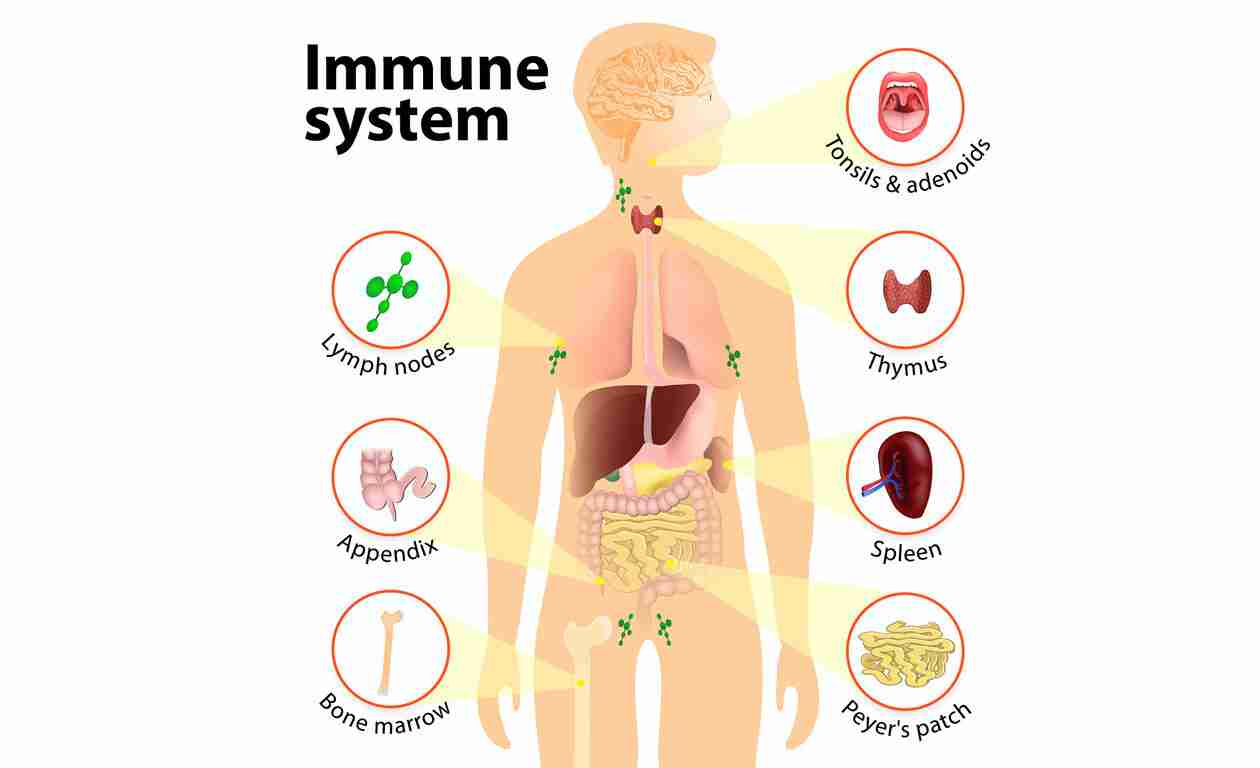
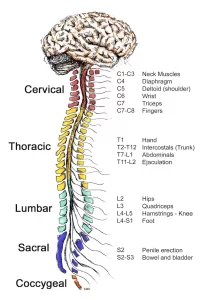

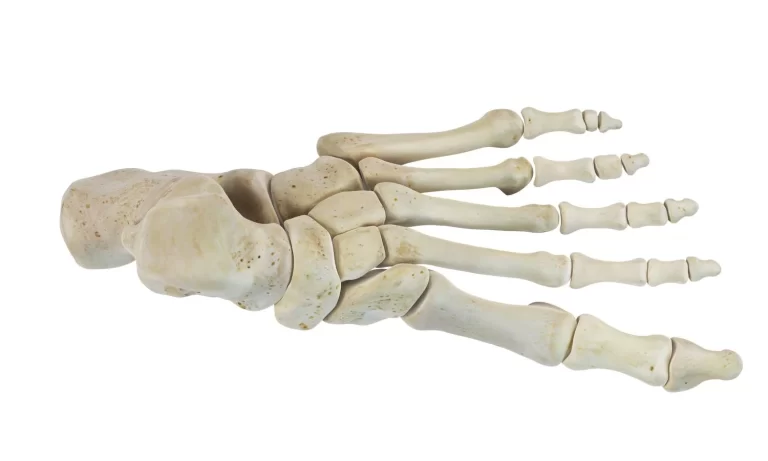

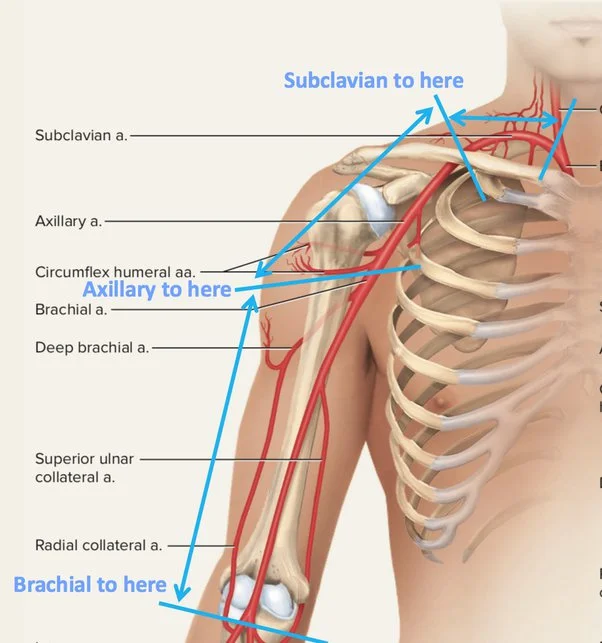
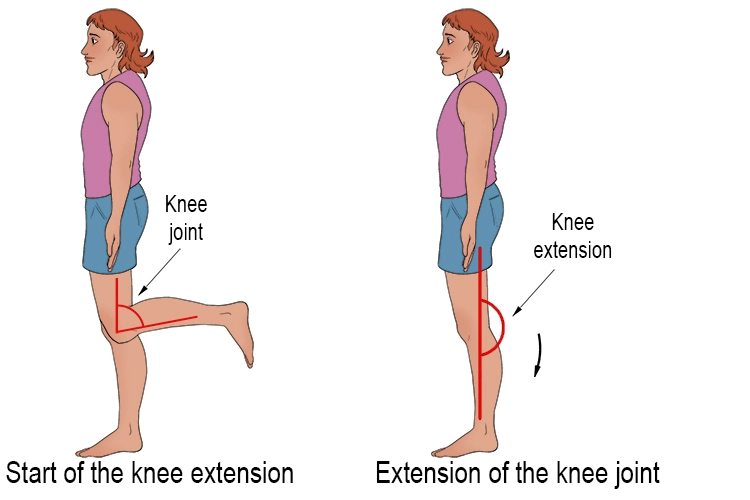
21 Comments